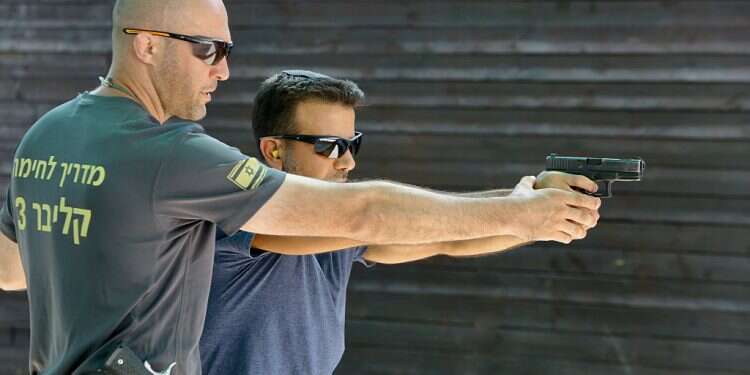In May, when tensions in Israel's mixed cities erupted in unprecedented force during Operation Guardian of the Walls, Tamar, a resident of Gush Etzion in Samaria, felt – like many other Israelis nationwide - that she was abandoned to her fate.
Follow Israel Hayom on Facebook and Twitter
Faced with the images of rage and destruction in Lod, Jaffa and elsewhere, she came to the conclusion that in the absence of a state agency that will defend her – she will defend herself.
The next stop was to apply for a firearm license.
Unlike the United States, Israel does not offer its citizens any "right to bear arms" within its framework of basic laws. In fact – and contrary to common misconception – the Jewish state has some of the strictest gun-control laws in the world.
Moreover, unlike in the US, where guns are readily available for purchase, even Israelis who have completed their military service cannot apply for a license before the age of 20. Those who did not serve in the IDF, for whatever reason, have to wait until they're 27 to seek a firearm license.
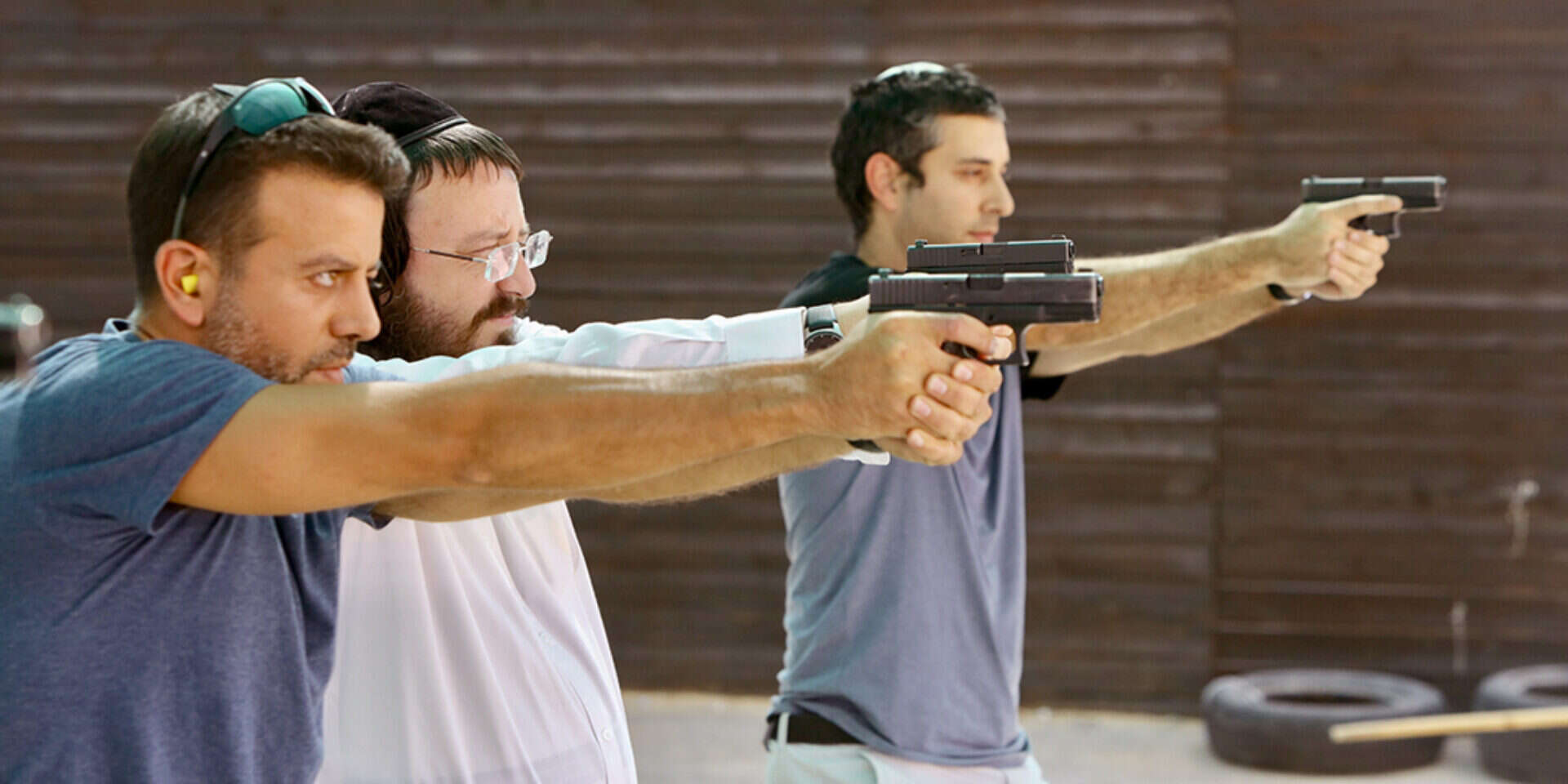
All applicants are required to provide proof of compliance with a long list of requirements and the type of firearm and number of bullets that a licensed firearm holder is permitted to purchase is limited.
Each type of firearm requires a separate license and assault rifles are off-limits – the most a civilian can apply for is a pistol.
"During the riots, I felt like I couldn't rely on anyone. I felt I had to defend myself because they [law enforcement] clearly weren't going to do it," Tamar said.
She's 49, a high-tech worker, and a delicate-looking mother of three – not exactly the type that comes to mind when you think about someone who can pull a gun on you.
"I'm not used to carrying a weapon and to be honest, the whole thing makes me uncomfortable," she says. "But at the end of the day, this is my life we're talking about. In my community, we say that it's better to shoot an attacker and save your life and deal with any legal issues later than to be the one laid to rest."
Tamar is hardly alone in her desire to bear arms and increase her sense of personal safety following May's events, which have caused a true crisis of confidence between the Jewish and Arab residents if many communities.
According to data from the Public Security Ministry, which enforces gun-control regulations, since the Operation Guardian of the Walls was launched on May 11, 2021, some 10,580 applications for a personal firearms license have been filed – six times the number of applications for the same period last year.
According to the ministry's data, the uptick in applications can be seen nationwide, rather than unique to Judea and Samaria, where many residents carry weapons for fear of Palestinian terrorist attacks.
Lod resident Zur Ra'anan, who is currently going for his masters in physics, also applied for a gun permit saying he "simply didn't feel safe" during the riots in the city.
Ra'anan moved in Lod, in central Israel, in 2015, as part of a "garin torani" – a term that refers to a group of religious Zionist families who settle in communities with low religious population seeking to strengthen the community's connection to religious Judaism and promote integration.
"When I moved, it was clear to me that I didn't want to carry a weapon. A lot of people asked me if I plan to get a [gun] license but I explained that if I move to a mixed city carrying a gun, it would be making a statement, it would tell my neighbors I had no faith in them, and I didn't want that.
"I also didn't think I needed a weapon. I believed that the police would protect me if we had any trouble and really, until the week of the riots we had no issues that were nationalistic," he stressed.
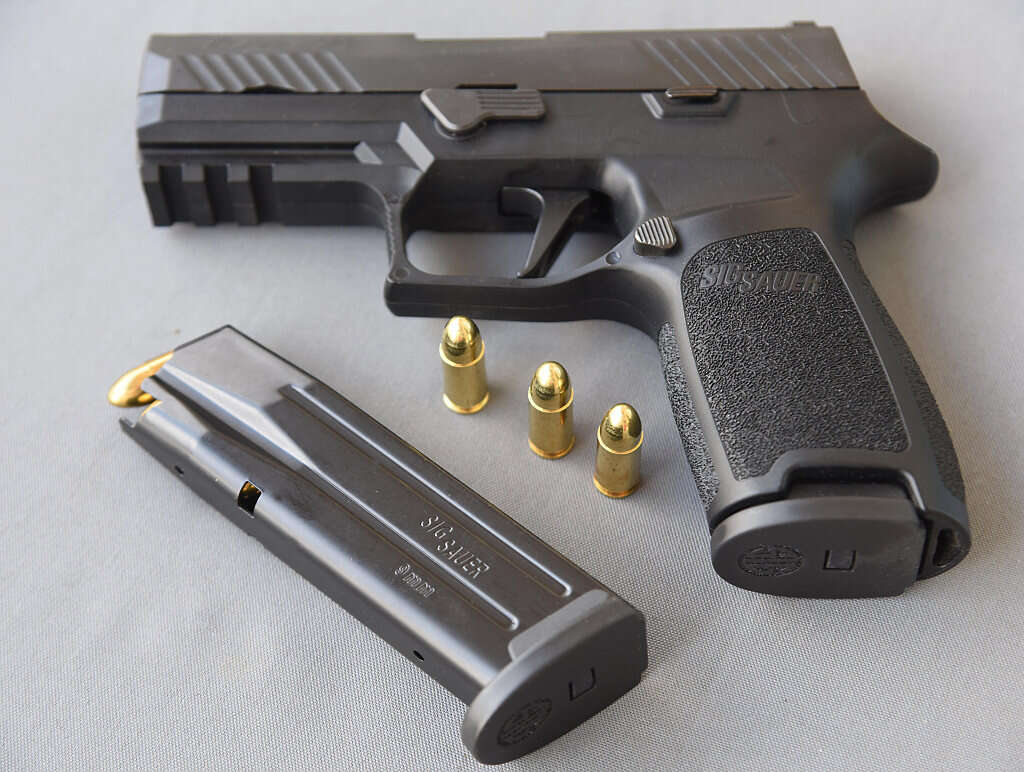
Q: What happened during that week that changed your mind?
"During the week of riots, I saw with my own eyes that the same police I relied on, and in whose hands I entrusted my security and the security of my family, didn't show up. We were very surprised by the intensity of the riots, the fierce nationalist hatred, and the criminal behavior. We saw the vacuum left by the police. It was very dangerous.
Q: Did you experience violence firsthand?
"We were practically under siege. Hundreds of Arabs were on the street, shouting and throwing stones. Leaving the house was suicide. Our house was hit by a firebomb. The window was closed, so it only hit the shutters. We didn't even dare go out to the stairwell during the sirens," he says, referring to Home Front Command guidelines in the absence of a bomb shelter.
"We preferred risking being hit by a missile than risk leaving the house and facing the rioters. There were Jews in the neighborhood who went out to the [bomb] shelter and were attacked in the stairwell."
Q: Didn't you call the police?
"We did. When they finally came, the firmest action they took was to throw a few stun grenades. It's a miracle nothing happened to us but we can't count on miracles to last."
During the riots, he recalls, "We all felt helpless and unprotected. Like all our Jewish neighbors, we, too, saw the madness and we were afraid. I slept with a hammer by the bed, in case anyone tried to break down the door. Not the most effective thing, but that's what I had to work with.
"Even in the weeks after the riots, we didn't feel any significant police presence in the neighborhood. We expected them to draw conclusions and launch an extensive operation that would include arrests, enforcement, and collecting weapons, but what they did was very minor.
"All these things made me realize that if has to be my responsibility to protect my family; that in a situation of mortal danger I must have a way to defend myself. That's why I want a gun."
His wife, he says, isn't too thrilled by the prospect of having a gun in the house.
"It makes you nervous to have a gun in the house but we feel we have no other choice," he said. I know several other people who are currently also in the process of obtaining a gun license."
According to information made available by the Firearms Licensing Department at the Public Security Ministry, the most sought-after weapon in Israel is a 9mm pistol. This type of weapon costs anywhere from 300 shekels ($90) for a second-hand gun, to NIS 20,000 ($6,245) for unique models. Mostly, in Israel, the average gun costs NIS 4,000 ($1,250).
These costs are compounded by a host of other fees, ranging from a few tens to a few hundreds of shekels a year for licensing fees, mandatory periodical firearms training, and ammunition. .
Miriam Lamkus, 23, a nursing student from the settlement of Tekoa, south of Jerusalem, also recently applied for a gun license, saying she feels it would help her feel safer.
"I drive alone on the roads of Judea and Samaria, and at any given moment a Palestinian [driver] can give me the finger, bypass my car with alarming speed then slam on the brakes, placing me in danger. There is no cell reception in some areas, so my fate is in my hands. After what happened in the May riots, I understood the need for self-defense."
Lamkos is no stranger to the horrors of terrorist attacks, and the importance of carrying weapons to prevent them. In November 2014, she lost her sister, Dalia, in a stabbing attack at the Gush Etzion junction. An Israeli passerby shot the terrorist but when his weapon stalled, he fought the attacker with his bare hands, sustaining 11 stab wounds in the process. A security guard that rushed to the scene eventually eliminated the terrorist.
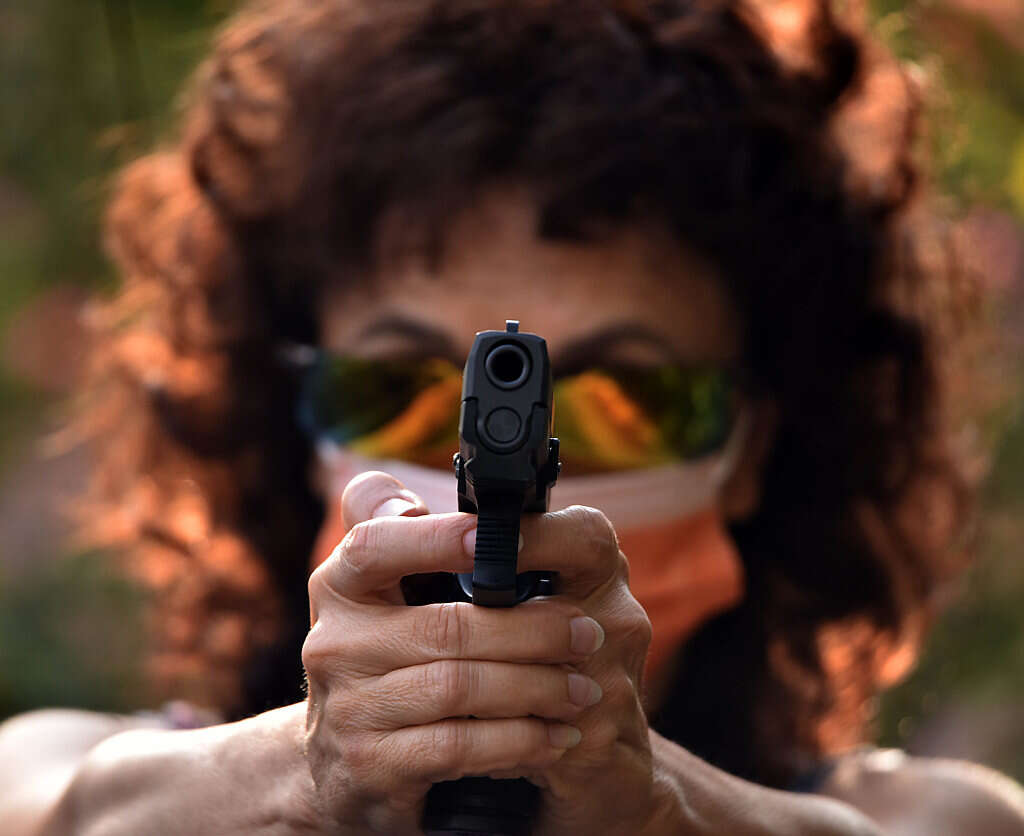
"Immediately after the attack I wanted to get a gun license, but it took me a long time to come to terms with it. What I saw in Operation Guardian of the Walls Guard spurred me to take action," she explained.
Israel Hellman (22), a Krav Maga instructor from the Jerusalem suburb of Givat Ze'ev, also recently applied for a gun permit
"My need to take get a gun comes from the reality in which we live. This is a country with lot of enemies who are constantly trying to kill us. I'm sure that when they will see a weapon it will deter them," he explains.
Q: Why do you, as a martial arts expert, need a weapon?
"I can handle a one-on-one physical confrontation with a terrorist, but if there is a gunfight, I'll need a weapon. I want to protect myself and those around me. I will do everything in my power to avoid a situation where I have to shoot, but if there is no other choice than to prevent an attack using a weapon – I won't hesitate."
Q: Do you think it's a good idea for our streets to be flooded with guns?
"No, it's certainly not, but if you live in dangerous areas, and have no criminal record or a history of mental illness, you should be able to defend yourself and your surroundings. That, in and of itself, will prevent terrorist attacks," he asserts.
The initial stage of applying for a firearms license includes filling out an online form and producing proof of competence, such as a health statement signed by a doctor, a certificate of military or national service or an exemption from it, and proof of residency in an area where a license can be issued.
Once all that is cleared, applicants must undergo an interview with a Firearms Licensing Department official, whose impression of the applicant before him is crucial to obtaining a gun permit.
Tamar will be going in for her interview in September.
Q: Whenever tensions flare up people feel they need weapons, but for the most part, they cool down and relinquish the idea.
"That's true, when a tense security situation calms down a bit, people forget it and resume their routine. But I think this time it's different. It is clear to me that there will be another wave of riots, and that next time, it will be more serious.
"The previous governments completely neglected the issue of Arab Israelis and unless they [the current government] make the [mental] switch and understand where this is going, no one will be safe. The next flare-up can't be far away. That is why I want to be prepared."
The Firearm Law of 1949 sets rigid eligibility criteria for gun permits for civilians, none more controversial than the one stating applicants must reside in an "eligible locality."
The list "eligible localities" includes mostly communities in Judea and Samaria, where you have to physically live to get a permit (a simple change of address with the Interior Ministry will not suffice), border-adjacent communities, and certain neighborhoods in Jerusalem, such as Ramot, Givat Ze'ev, and the French Hill.
Six years ago, during what has come to be known as the lone-wolf wave of terrorism, then-Public Security Minister Gilad Erdan expanded the criteria for issuing civilians gun permits.
"Over the last few weeks, many civilians assisted the Israel Police in neutralizing terrorists carrying out attacks. Civilians who are trained in the use of firearms are a force multiplier in the war on terror, which is why I acted to ease [criteria] during this period," Erdan said at the time.
Erdan set the new criteria in place in 2018 but industry officials claim that current Public Security Minister Omer Barlev seeks to again impose a stricter gun control law, thus cutting the number of weapons in civilian hands.
Barlev's office denied the claim, saying in a statement that, "Seeking to address the issue [of gun permits] the minister's position is to follow the recommendations of the attorney general on the matter, and set the criteria via legislation in the Knesset.
"After taking office in June, Minister Barlev ordered a professional audit of the issue and he will not make a decision prior to conducting a full review of the matter.
"Restoring the public's confidence and sense of personal security are two objectives Minister Barlev plans to pursue," the statement said.
According to a shooting instructor, who preferred to remain unnamed, "There is currently no encouragement on the part of the state for civilians to carry weapons – on the contrary, and despite the fact that it has been proven that civilians who carry weapons legally can prevent terrorist attacks or diminish their gravity. Today, the public security minister is trying to reduce this possibility."
Q: The concern is that Israel will be flooded with firearms, some of which will not contribute to public security – perhaps the opposite.
"As a shooting instructor, I can say that all the stories we know about a licensed weapon that was used for so-called 'honor killings' were organizational weapons, not private ones," he insisted.
"Security forces cannot be everywhere all the time and this is where armed civilians come in. They are a critical element in dealing with it [threats]. Armed civilians can certainly prevent or stop terrorist attacks. Sometimes an attack is prevented only because an armed civilian is present."
The volume of applications for gun permits has created a serious bureaucratic backlog. A source familiar with the process told Israel Hayom that if before Operation Guardian of the Walls authorities would review applications within three to seven days, not the same procedure takes three weeks.
"The dramatic increase in the number of requests is evident throughout the country," explains Yair Melamed, 42, a shooting instructor from Jerusalem. He himself lives in the southern Mount Hebron and has been in the field for eight years.
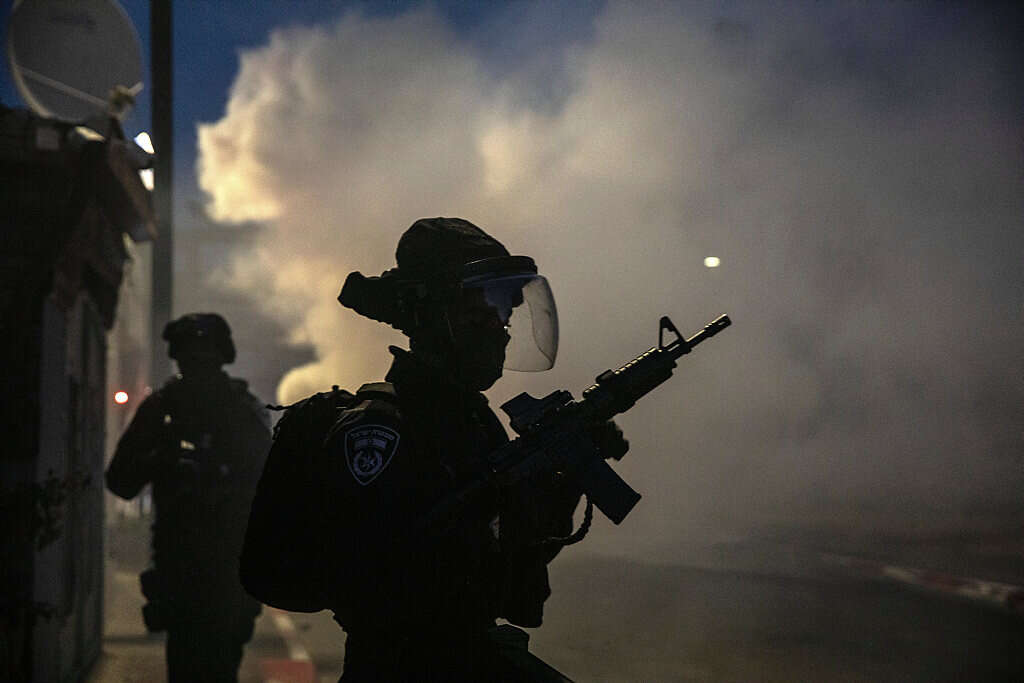
"As far as I know, the number of applications submitted in the last three months is the same as the number of applications submitted in the last two and a half years," he said.
Entering the shooting range where he works is like going through a portal into a different universe. "Using a gun isn't like any other thing you do on a daily basis. It takes practice. You have to be skilled when you use a weapon," he explains.
The shooting range is the domain of those who successfully graduated the screening process, and is a mandatory step to issuing and renewing a gun license.
Initial training includes a 4.5-hour workshop where applicants learn about gun laws, carrying regulations and restrictions, gun safety, the rules of engagement, and threat scenarios, as well as how to properly store, maintain, and carry their weapons.
Actually firing at the range is the very last step in training. Each participant fires 80 bullets, in three firing positions: standing, kneeling and lying down. Training also includes learning how to fire from behind a shelter and replace a cartridge during a simulated battle.
The workshop is followed by a written test and a practical one – a firing range session after which the accuracy of each shooting cluster is inspected. To earn the right to bear arms, applicants must complete all three successfully.
Gun owners are required to undergo a mandatory refresher course every two years as part of the conditions of the license.
Shooting instructor Talia Adar says that safety regulations have become stricter over the past few years. Weapons must now be kept in a strongbox with the bullets and the license itself, and civilians carrying guns may only use them in situations of clear and present danger.
"Every spent bullet must be accounted for, even in cases of unintentional discharge," she stressed. "Every time a gun is fired you have to report it to the police immediately, even if there are no casualties. And there is a chance that an unintentional discharge will cost you your license," she warns.
Subscribe to Israel Hayom's daily newsletter and never miss our top stories!
She further explained that under the law, shooting at an assailant is the absolute last result.
"It is permissible to fire at an assailant only when he has the means, intent and capability [to carry out an attack] at the same time, and only when there is no other way to stop him," she noted.
"For example, if I hear 'Allahu Akbar,' and see a guy with a knife running towards people – am I allowed to shoot? Of course. It's classic. Pepper spray isn't going to stop him, and I have no other way, so I pull out the gun and shoot, aiming for center mass. This is not the time to fire in the air or at the legs," she said, referring to the regulations outlined in the rules of engagement. "You're in the middle of an incident and there is no time to warn [the suspect]."
Aiming for center mass, as opposed to the head, she explains, helps neutralize the threat faster, as the torso represents a bigger target. As to how many bullets one should fire at a terrorist, Talia says, "As many as it takes to take him down."

